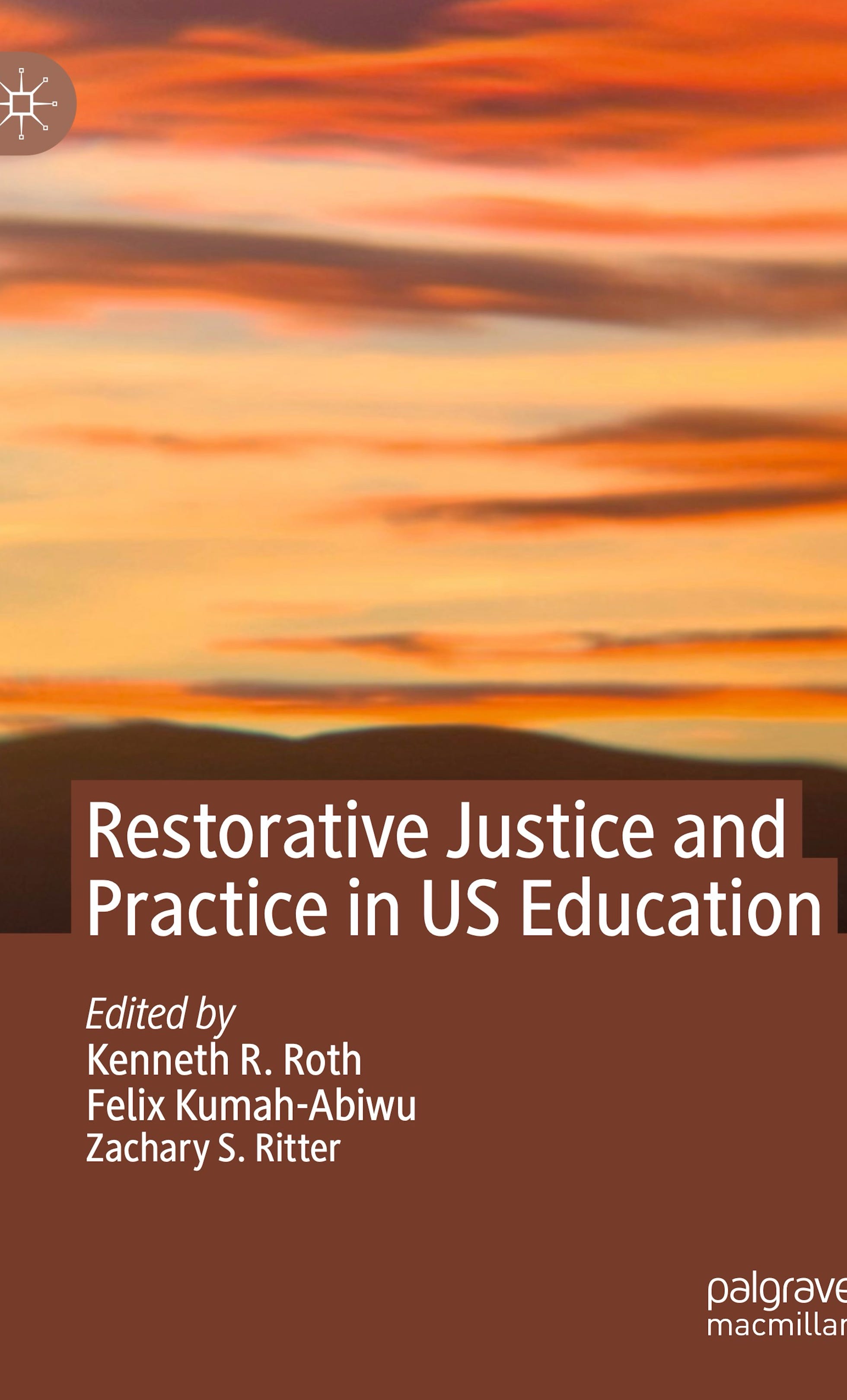
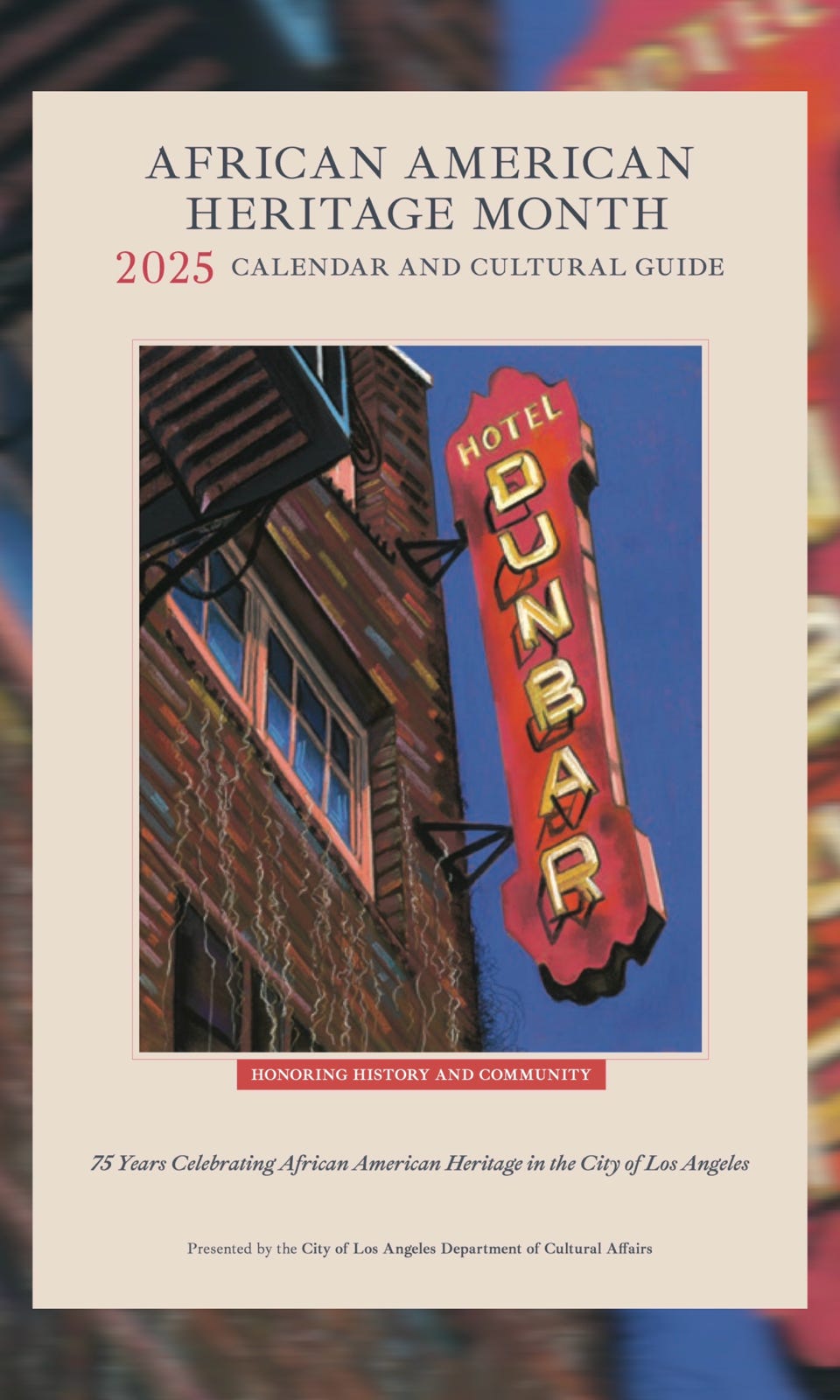
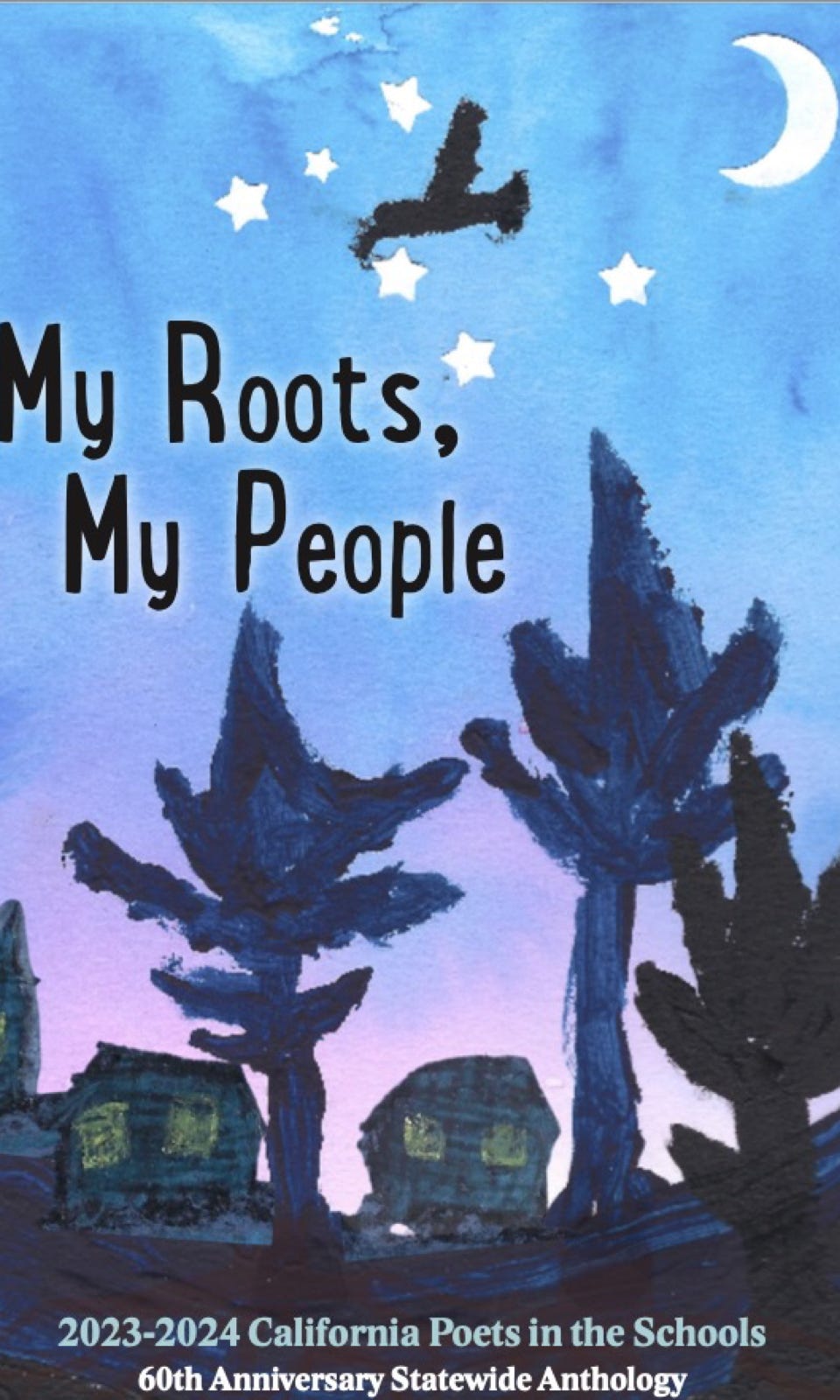
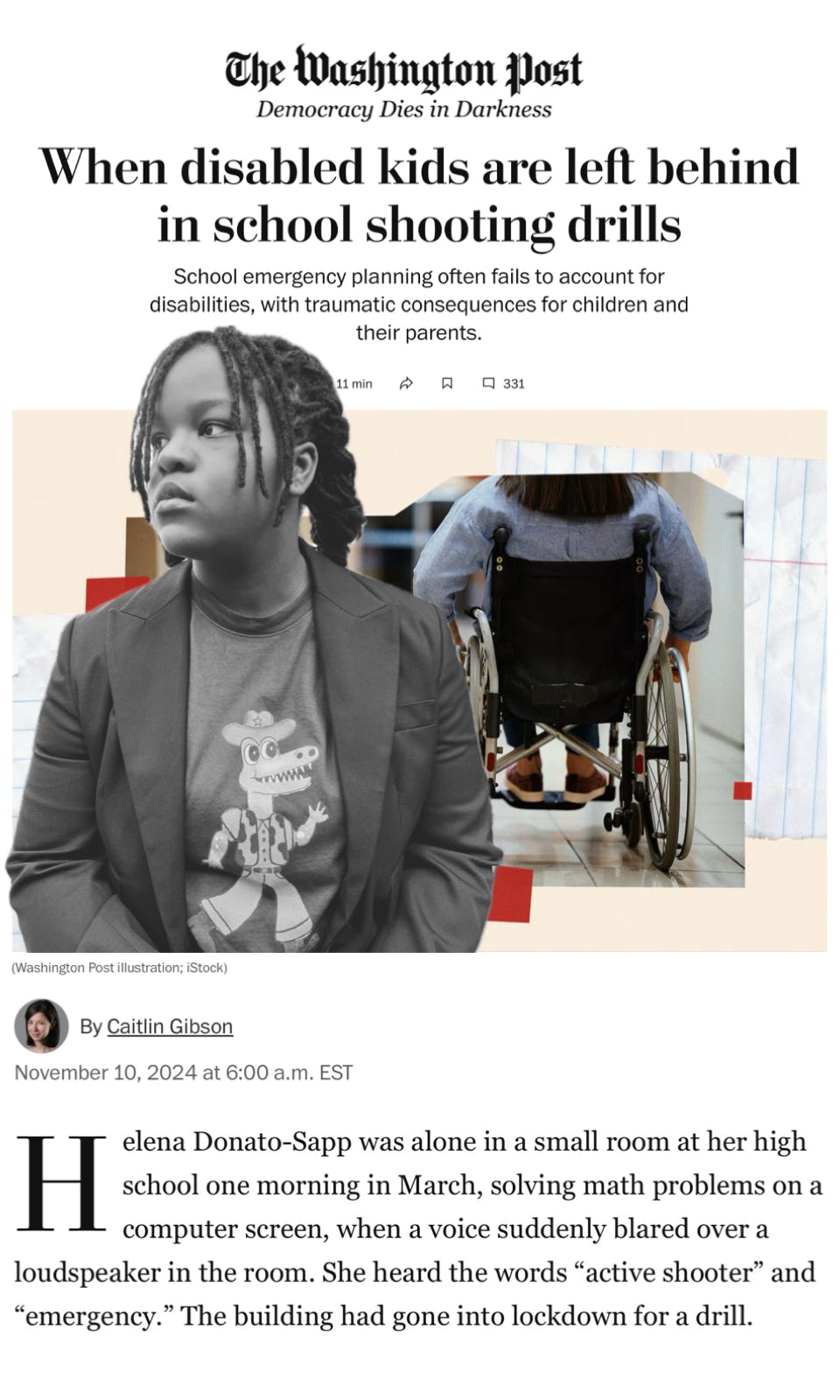
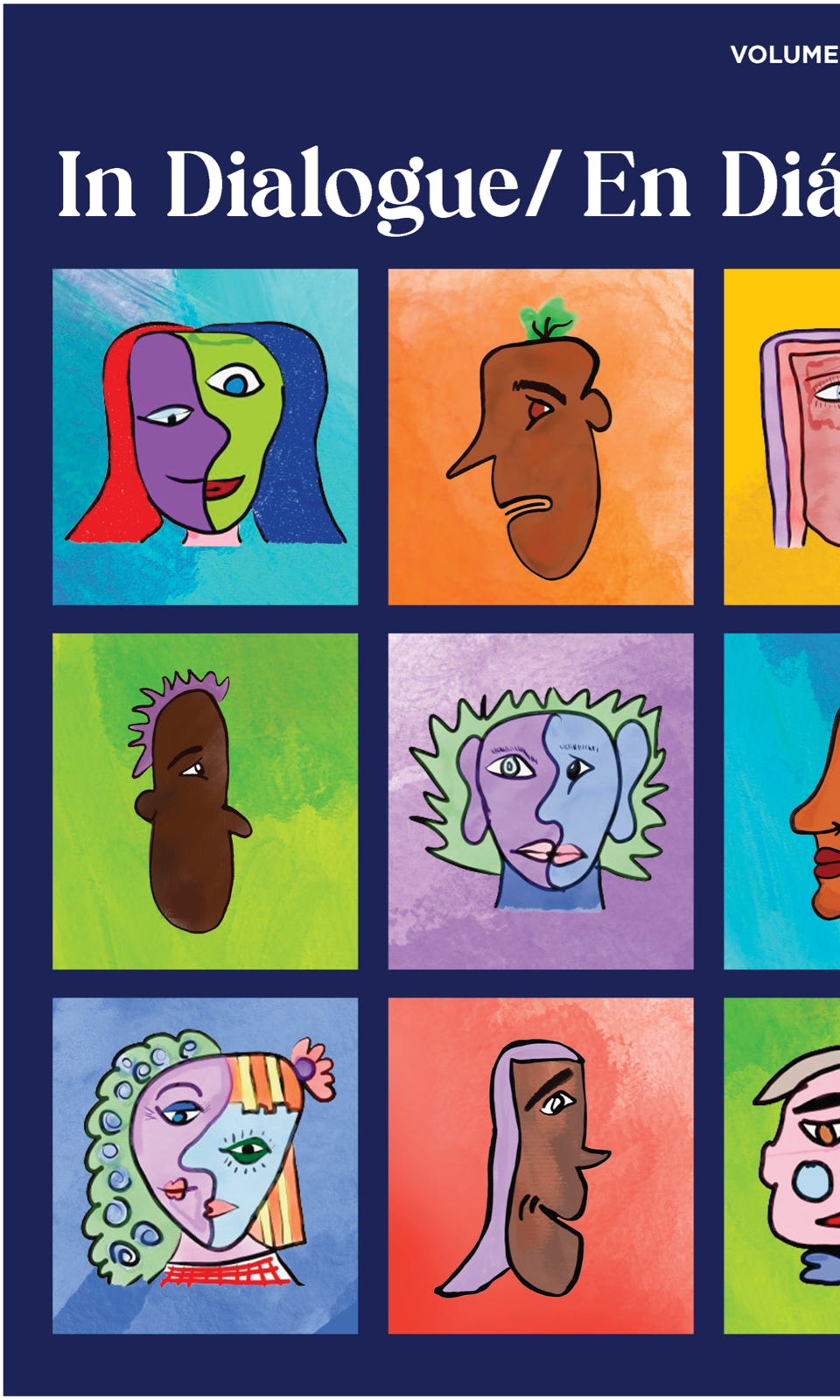
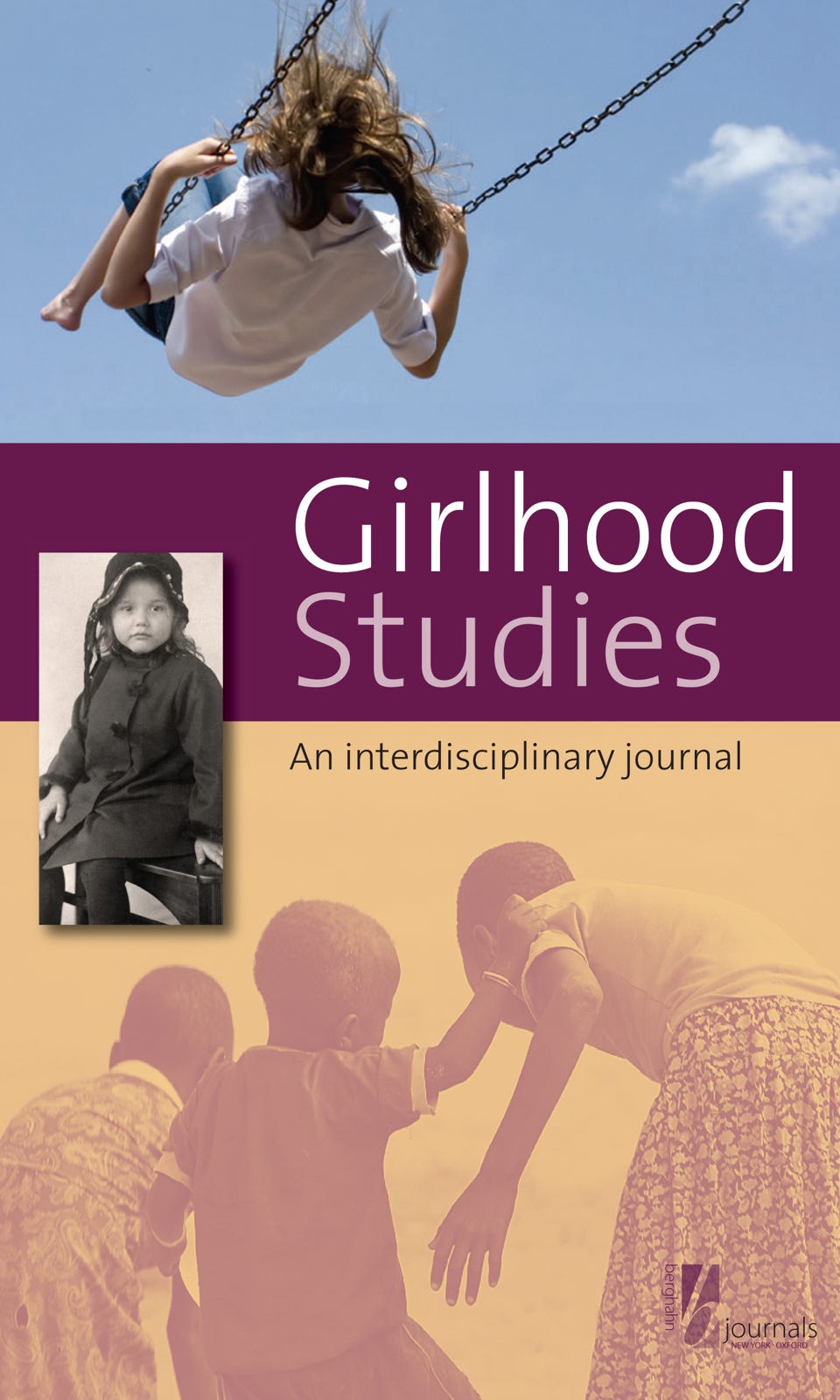






Helena and her two fathers co-created a poem in 3 voices that honors and remembers the trauma-filled days of the COVID-19 pandemic. The focus is on the “Praxis of Grief, Joy, and Healing” in this special themed issue of this peer-reviewed journal. Where do we find ourselves in our changed reality? How are joy, grief, and healing intertwined with the transformation that has taken place over the past COVID years?
Using her positionality as a middle school student, 12-year-old Helena looks back on her elementary school assignments with a critical lens to decolonize her education. Meticulously reflecting on what she was taught – and not taught – from kindergarten through fifth-grade, she looks at key assignments to show how a colonized education happened to her and how she grew into political consciousness and began to confront the lies she was being taught. She offers advice to teachers for presenting students with a more equitable and decolonized curriculum in the lower grades.
>Donato-Sapp, H. (2022). The King of the mission: 4th-grade California history
project on the missions in “Brave and didn’t know it: A 12-year-old decolonizes her elementary education.” The Iowa Journal for the Social Studies, Vol. 30, No. 2, pgs. 40-41.
>Donato-Sapp, H. (2022). Sir Francis Drake: Explorer and hero or pirate and slave trader (4th-Grade) in “Brave and didn’t know it: A 12-year-old decolonizes her elementary education.” The Iowa Journal for the Social Studies, Vol. 30, No. 2, pgs. 42-43.
>Donato-Sapp, H. (2022). The raven, the salmon, and the fox: A Native American fable in “Brave and didn’t know it: A 12-year-old decolonizes her elementary education.” The Iowa Journal for the Social Studies, Vol. 30, No. 2, pgs. 44-46.
>Donato-Sapp, H. (2022). The interesting narrative of the life of Lydia Equiano (5th-Grade) in “Brave and didn’t know it: A 12-year-old decolonizes her elementary education.” The Iowa Journal for the Social Studies, Vol. 30, No. 2, pgs. 47-53.
>Donato-Sapp, H. (2022). The story of Savannah by Savannah herself (5th-Grade) in “Brave and didn’t know it: A 12-year-old decolonizes her elementary education.” The Iowa Journal for the Social Studies, Vol. 30, No. 2, pgs. 54-57.
>Donato-Sapp, H. (2022). Encounter with Ponce de Leon (5th-Grade) in “Brave and didn’t know it: A 12-year-old decolonizes her elementary education.” The Iowa Journal for the Social Studies, Vol. 30, No. 2, pgs. 59-63.
>Donato-Sapp, H. (2022). The journal of Juan Ponce de León (5th-Grade) in “Brave and didn’t know it: A 12-year-old decolonizes her elementary education.” The Iowa Journal for the Social Studies, Vol. 30, No. 2, pgs. 64-90.
Helena is an invited speaker alongside Dr. Nirmala Erevelles – a Professor at The University of Alabama, Dr. Nirmala Erevelles – a Professor at The University of Alabama at Tuscaloosa, Dr. Lisette E. Torres – a Senior research associate and project coordinator at TERC, and Dr. Federico Waitoller – a Professor at the University of Chicago. This conversation was facilitated by Lingyu Li, a multilingual doctoral candidate in the Department of Rehabilitation Psychology and Special Education at the University of Wisconsin – Madison. The five of them held a dialogue on disability justice that became this article in Equity and Excellence in Education.
This chapter is written by Helena as a self-identified 12-year-old Black girl scholar. Claiming multiple geographies, like Blackness, girlhood, disAbility, adoption, a two-dad family, and others, the author addresses how schooling sees her as multiple deficits instead of the multiple assets she claims to be herself. Her claim, then, is that it is schooling that is deficit, not students. Using autoethnography, the author fiercely confronts critics that continue to say she is not enough and show how, brick-by-brick, she has built herself into a young Black scholar despite school. In doing so, she reveals a model of how other children can use their voices to transform the multiple deficit ways that education looks at them. The scholar suggests that children her own age learn research methods early and use them to decolonize the toxic lies they are often fed in school as well as confront the anti-child views that schooling holds.
The Museum of Tolerance in Los Angeles is an important Holocaust museum and each year 130,000 middle and high school students visit it. The Museum currently has a major Anne Frank exhibit and has developed a curriculum for it. Liebe Geft, the Director of the museum, and Linda Blanshay, the Director of Education, know of Helena’s work and asked her to do the model for the Anne Frank Journal to show teachers and students a “best practice” piece. Helena did a model the whole journal and it is a 73-page interactive curriculum. Helena’s “best practices” model will be the guide for tens-of-thousands of middle and high school students for years to come.
Anne Frank, in her famous essay titled “Give!” speaks to the great acts of kindness that each person can do daily. In this lesson at The Museum of Tolerance, students are asked to read Anne’s essay and use it as a springboard to write their own essay on the power of giving. Helena was asked to write an essay on giving that used Anne Frank’s famous giving essay.
After an application and interview process, Helena was one of six girls chosen from a pool of girls around the world to be on the Feminist Focus Blog Team for the 2022-2023 academic school year. Although she’s only requested to do two blogs per semester and a total of four for her year as a team blogger, Helena has already published four in 2022! Here are her blogs for 2023.
>Donato-Sapp, H. (2023, January 16). The Humans Who Feed Us. {Blog post}.
Retrieved from
Young global changemakers for a feminist future is a book that delves deeply into feminist history, current feminist issues, and changemaker tactics and strategies. Then the book invites fifteen young women from around the world to speak in their own voices about Black feminism; body image, safety, and reproductive rights; ethnic feminism; education feminists; post-colonial feminists; and media and corporate changemakers. Helena is featured as one of these amazing global changemakers.
Helena and her two dads reflect about a horrific bullying experience that Helena had at the end of 7th grade. The two dads help Helena negotiate hard conversations about repair and apology. The blog was written by invitation of the School Crisis Recovery and Renewal project.
Helena was invited to teach a 2-hour course on poetry as part of role in The Youth Poet Laureate Program, a project of The Long Beach Public Library System. She developed a comprehensive 24-page curriculum guide that blends one of her favorite poetry forms – the Phrase Poem – with several of her forms of activism (The Humans Who Feed Us PSA, Disability Justice, Feminism, and Black Girlhood).
After an application and interview process, Helena was one of six girls chosen from a pool of girls around the world to be on the Feminist Focus Blog Team for the 2022-2023 academic school year. Below are four of her blogs published in 2022.
>Donato-Sapp, H. (2022, September 1). Feminist flakes. {Blog post}. Retrieved
from https://feministfocus.tumblr.com/post/694665422792998912/feminist-flakes
>Donato-Sapp, H. (2022, October 1). Remembering – and honoring – the history
of hatpin feminism. {Blog post}. Retrieved from
https://feministfocus.tumblr.com/post/698127449076154368/remembering-and-honoring-the-history-of-hatpin
>Donato-Sapp, H. (2022, November 1). Girls receive national STEM awards.
{Blog post}. Retrieved from
https://feministfocus.tumblr.com/post/701298580284227584/girls-receive-national-stem-awards
>Donato-Sapp, H. (2022, December 1). Have a very feminist holiday. {Blog post}. Retrieved from https://feministfocus.tumblr.com/post/704354375889567744/have-a-very-feminist-holiday
Dr. Jen Stacy and Dr. Yesenia Fernández, founders and editors of In Dialogue/En Diálogo, contacted Helena and commissioned her to create original art for this new academic journal. They had seen Helena’s art in some of the family’s social media posts and loved it and want their new journal to have youth presence. Art-ivist Helena pulled all of the stops for the commission, creating a robust 53-page portfolio, multiple cover ideas, individual art transparencies, and three custom Helenatica fonts.
Helena’s second article in New Moon Girl Magazine is about the history of vaccinations and it is a very timely piece. She had to research and write about the history of epidemics and pandemics, when vaccinations first appeared, and their impact on the world and global health. She interviewed nine girls from Australia, the Philippines, and the United States about their Coronavirus pandemic experiences.
New Moon Girl Magazine is the original girl-created media. Girl writers and artists from around the world contribute their creativity and content. Helena applied to be a New Moon Girl Magazine reporter and was accepted! Her first assignment was to interview Tamekia Swint, the founder of Styles4Kidz – a non-profit that provides textured hair education, services, and resources that serve kids and families in the biracial, transracial adoptive, and foster care communities. This piece taught Helena about positionality because she wrote that she, too, was an adopted Black child with non-Black parents and hair is a really big deal in her family. Positionality is when a researcher names their intersectional identities as it relates to what they are researching.
The Editors at New Moon Girl Magazine asked if Helena had a piece of original art that she might want to submit with her article on Styles4Kidz. She is especially fond of self-portraiture and wanted to include her 5th-grade self-portrait. She was excited to have a piece of art published in the magazine.
For this book, Helena surveyed the Black women in her life and asked them what it was that helped them through their K-12 schooling experiences. She collected their wisdoms and pulled out the key phrases that spoke to her the most. She also wanted to honor the powerful Black women that she has heard speak in the last few years and reflected back on the advice they’d given her. She has heard Lecia Brooks from The Southern Poverty Law Center speak several times. She heard Dr. Angela Davis speak and she wanted her words in the paper too. She also reached back to history and included phrases from Ruby Bridges and Linda Brown because they are so important to her; she has been inspired to greatness by the children who came before her. Some of the phrases, then, are from women in her life, some from important activists today, and some from girls her age in history. If a phrase is from a friend, she let it stand alone, but if it was from one of the well-known people, she put their phrase in italics and their name in parentheses because she had just learned about citations and plagiarism in 4th-grade. She turned all these wisdoms into a Phrase Poem that offers advice to Black girls like herself as they negotiate the often-hostile hallways of school.
Science has always been Helena’s favorite subject and she wants to write a series of pieces about women in science. She interviewed veterinarian Margo Wixson and it was fun because she really told Helena as much gross stuff as possible about the ins-and-outs of being a veterinarian. One thing that is very important about this piece is that Helena wrote at length about the process she goes through before she interviews someone. She wanted to write out that process so that other girls can become scholars too.
Helena was invited to be the Designated Conference Poet for The National Institutes for Historically-Underserved Students Think Tank in November 2019 and was asked to write an original poem reflecting the theme of “Rise Up.” She wrote and delivered her original poem titled “Future Me Thanks You” and opened the conference with it on November 7th. She presented alongside Aaron Abeyta, American Book Award Winner. The purpose of the Institutes is to research and identify common barriers to educational equity and success for all historically-underserved students. The Institutes published the poem and everyone went home with a beautiful copy of her work.



When Helena was in 3rd-grade she found out there was an art competition at the Brown v. Board of Education Historical Site Museum in Topeka, Kansas. It was for Kansas kids only, but she wrote them and asked if they’d take her art from California and they said yes. Being bold is one of the Donato-Sapp family values and it worked. It was a good time for Helena to learn more about segregation and integration. The family bought a bunch of books that covered Brown v. Board of Education, Ruby Bridges, Sylvia Mendez and the Mendez v. Westminster case in 1947. They read a book each night and talked about the stories and the histories. After Helena learned all about it, an artist friend named Eric Leffler helped her imagine and produce two linocut pieces of art – one that represented segregation and one that represented integration. Helena sent them in to the Living the Dream 2018 Student Art Contest. She didn’t win, but one of her pieces was chosen by Kansas Muralist Michael Toombs to be a part of the Brown v. Board Mural Project and now her art is a part of the permanent exhibit at this important museum. This was Helena’s second piece of art in a national museum collection. She was 8 years old.
When she was 7 years old her parents asked her some questions about what it was like to live in a two-dad family. They wrote down Helena’s answers verbatim and sent her essay into some editors who were writing a book on queer families. It got accepted and it was her first-ever official publication in a book. She even got paid $15.00 for it! When an author gets paid for their work it is called “public scholarship” and when they don’t get paid for their work it is called “academic scholarship.” Helena was 8 years old when it was published.

When Helena was in kindergarten, she painted a picture of a mango. It was her class assignment so everyone did the same art piece. Her parents post her art on their social media accounts and a colleague of her dad’s suggested that some of Helena’s art be entered into a children’s exhibit. Helena’s Mango (Mango 2015, watercolor on paper) was selected to be in the 2016 Seen + Heard Treats Exhibition in Chicago. Seen + Heard is an artist project by Rachel L. S. Harper that has the aim of accumulating a solid platform to advocate for the importance of cultural works of children. Through exhibitions, publications, events, research, and direct support to artists, scientists, philosophers, politicians, and others ages 0-12, the purpose of the project is to be sure that the wisdom of children is amply represented in our cultural world.The family flew to Chicago and Helena was at the opening and was interviewed. After the exhibit the artists were contacted to see if they would consider donating their art piece to the Seen + Heard permanent collection. Helena donated hers and it is currently on exhibit at DePaul University. Helena was 7 years old and her first piece of art had been curated into a national collection. This was her first piece of scholarship.
Copyright © 2025